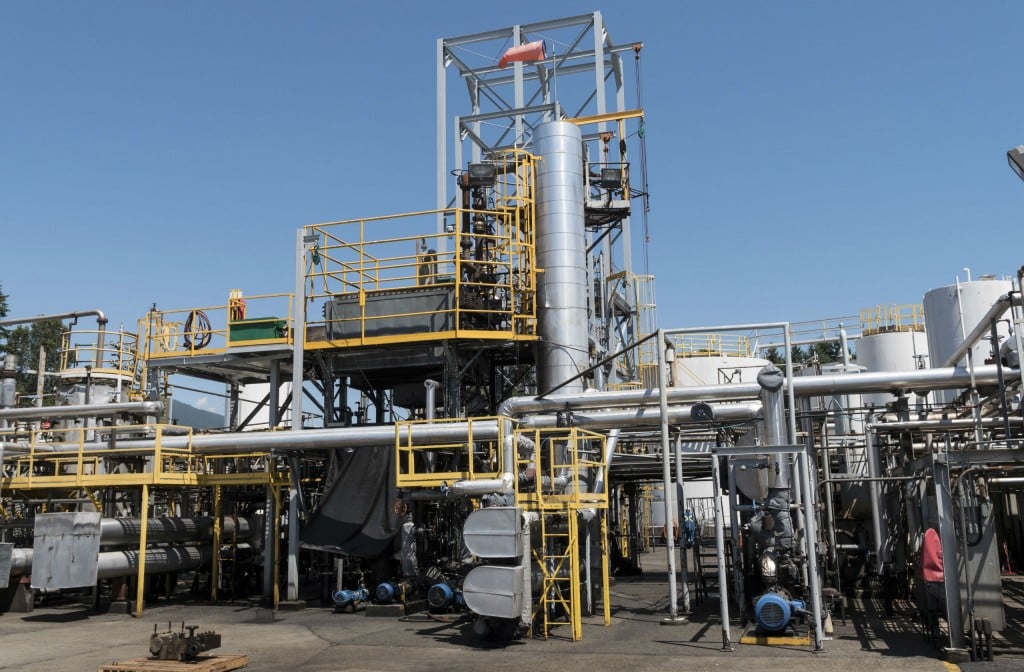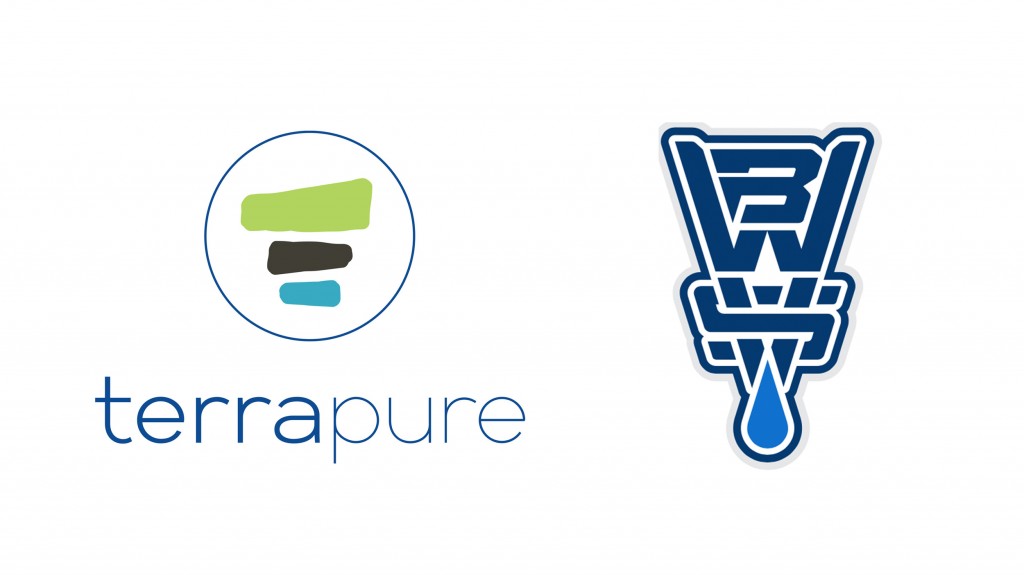Used oil recycling: good for the environment, good for business
Terrapure re-refinery’s process boosts the recovery of used motor oil and industrial fluids

Terrapure continues to advance the technology of used oil recovery
Terrapure Environmental's North Vancouver used oil re-refinery is the world's first commercial-scale re-refinery to use vacuum distillation and hydro-treating to recover base oil from used lubricating oil. Since 1983, automotive service, manufacturing, transportation and other industries across Canada have relied on the used oil recovery process pioneered by Terrapure to manage their waste and reduce their impact on the environment.
Terrapure operates a network of used oil collection facilities in western Canada. The North Vancouver re-refinery and the company's other operations throughout B.C., Alberta and Saskatchewan, focus on collection centers and collecting as much oil as possible from the automotive services industry (service stations, oil change shops, car dealerships and auto mechanic shops) and other industrial sectors for recycling. Annually, their used oil and industrial fluids collection amounts to tens of millions of litres that is recovered and diverted from the waste stream in Western Canada, including brake fluid, oil filters and antifreeze.
Why is it important to properly recover used motor oil?
Automotive lubricating oil (aka motor oil, including transmission fluids) from combustion engines is a large, potentially hazardous waste stream, so potentially harmful to the environment that one litre is enough to contaminate one million litres of water, or an entire Olympic-sized swimming pool. Like with all industrial and household hazardous waste, it is extremely important that this material is managed properly.
How are used motor oil and other automotive fluids recovered?
Used motor oil goes through various stages before it is recovered and can be turned into new and useful products.
1. Test to make sure it is able to be re-refined
Used motor oil must be rigorously tested to ensure it is suitable for re-refining. Lower-quality oil that has too many contaminants or too much water content, for example, is reused for its heat value as an industrial fuel oil.
2. Re-refine through dehydration, defueling, vacuum distillation and hydro-treating
High-quality used oil that is deemed suitable for re-refining goes through a lengthy process to be recycled. The first three stages of re-refining at Terrapure - dehydration, defueling and vacuum distillation - remove water, fuel, contaminants and remaining additives from the used motor oil. The final stage, hydro-treating, is identical to conventional refining. It reduces the aromatic content, acidity, carbon residue, sulphur, nitrogen and sludge-forming tendencies, while increasing saturates content and improving oxidation stability, colour, antioxidant response and viscosity and temperature characteristics. This process is 100 percent sustainable and can be repeated over and over without degrading the quality of the re-refined product.
3. Sell or blend the recycled oil
Once base oil has been recovered and passed through quality assurance testing, it is either sold as recycled base oil to other lubricant manufacturers that produce their own blends of recycled oil, or blended with technologically advanced additives to produce a wide range of Terrapure's Advanta brand or white label recycled engine and industrial oils. Overall, Terrapure is able to recover over 93 percent of the waste oil collected annually.
Terrapure's re-refinery and the company's other operations throughout B.C., Alberta and Saskatchewan collect, recover and divert tens of millions of litres of waste oil annually.
What is the benefit of recycling used oil?
Recycling used oil provides many benefits, including improved environmental sustainability and corporate reputation.
1. Increased sustainability
Re-refining is widely recognized as the best option when it comes to managing and recycling used oil. Not only does it produce a new recycled product from what may otherwise be treated as waste, but every litre of re-refined oil is a litre that does not have to be extracted from the ground and refined from non-renewable virgin crude oil. Additionally, in many cases, the same businesses that provide used oil to Terrapure for recycling also use the recycled lubricants produced in North Vancouver for their businesses. This effectively closes the environmental loop for used oil, further enhancing its sustainability.
2. Environmental benefits
Capturing and re-refining used oil eliminates the risk of it getting into and harming the environment. Additionally, the carbon footprint of re-refined oil is lower than that produced from virgin crude. In fact, a Life Cycle Assessment conducted for the Terrapure North Vancouver facility determined that GHG emissions from its production of recycled lubricating oils were approximately 44,700 tonnes less CO2e (carbon dioxide equivalent) annually than if the same volume was produced through refining of virgin crude oil. It also produces approximately 94,000 tonnes less CO2e than if the used oil is burned for heat value.
3. Profile building
Recovering used oil for re-refining and using recycled oil can help enhance corporate reputation. Terrapure provides certificates and other promotional material to its automotive-service customers to display in their facilities, highlighting their environmental responsibility. This lets consumers know they are dealing with a business that cares about the environment and is doing its part to reduce our reliance on natural resources.
Terrapure - a Canadian trailblazer in recycling industrial oil and lead-acid batteries
Terrapure's North Vancouver recycling center uses technologies in vacuum distillation and hydro-treating that were patented over 30 years ago and remain the global standard today, according to the company. The processes pioneered at the facility has since been adopted by 11 other re-refineries in North America, 10 in the United States, and the only other Canadian oil re-refining facility, located in Ontario. Terrapure challenges the industry and itself by continuously optimizing the re-refinery process to reduce energy consumption and greenhouse-gas, as well as heavy-metals emissions.
Outside of industrial oil recycling, Terrapure specializes in lead-acid battery recycling, site remediation and multiple other industrial waste management, environmental and field services. Read our October 2020 feature cover story, "Getting the Lead Out", for more on the lead-acid battery side of Terrapure's business.
Also, read our 2019 story about Terrapure Environmental and Vale Canada's Environmental Leader Award for Project of the Year for their new, sustainable option for managing biosolids during winter months, when farmland application is prohibited and storage is complicated.
Company info
1100 Burloak Drive Ste. 500 Burlington, Ontario L7L 6B2 905-315-6300
Burlington, ON
CA,
Website:
terrapureenv.com



